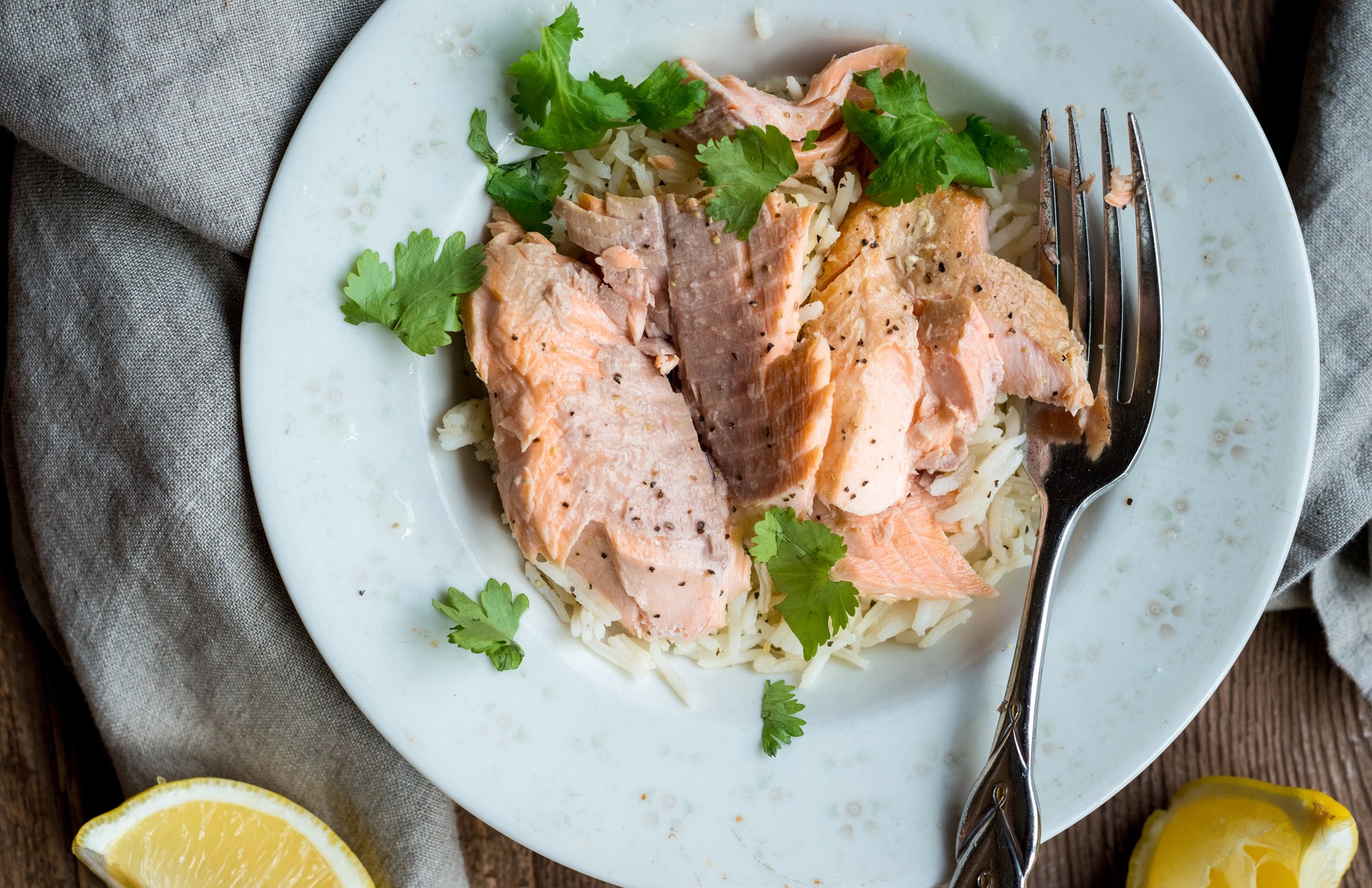There are lots of reasons and benefits for including oily fish as part of a healthy balanced diet. In general, all adults should try to eat fish twice per week with oily fish at least once per week. During pregnancy, you should try to eat oily fish 1-2 times per week.
Fish is rich in protein, B vitamins, iodine, zinc and selenium and oily fish is also rich in Vitamin D and Omega-3 fatty acids. Iodine plays an important role in pregnancy as it supports normal cognitive development and recent studies have linked iodine levels during pregnancy and children’s IQ.
Although these are all great reasons for including fish as part of your diet, the two biggest benefits of consuming oily fish during your pregnancy is that it is one of the few dietary sources of Vitamin D and it is the only food that provides two special Omega-3 fatty acids — EPA and DHA. Both of these fatty acids are important for heart health in all adults but DHA during pregnancy also plays an important role in baby’s brain and eye development.
Omega 3
Long chain omega-3 polyunsaturated fatty acids are healthy fats which are essential to include in a healthy balanced diet as the human body has a very limited ability to produce these fats. Particularly during pregnancy, DHA, an omega-3 found in oily fish is thought to be essential for the developing baby — for their brain, eyes and nervous systems.
The European Food Safety Authority recommends that all pregnant women consume an extra 700-1400mg of DHA per week on top of the already recommended 1,750mg of combined DHA and EPA. This increased recommendation can easily be reached by including 1-2 portions of oily fish per week.
What is the DHA content of common oily fish?
|
Fish |
Serving size (g) |
DHA (mg) |
|
Tuna* Steak |
120 |
2,749 |
|
Salmon |
120 |
2,485 |
|
Mackerel |
120 |
1,507 |
|
Herring kippered |
120 |
902 |
|
Rainbow trout |
120 |
641 |
|
Small tin tuna* |
70 |
47.2 |
Source: FSAI, 2011
*Note that mercury intake should be limited during pregnancy. Tuna does contain some mercury so intakes should be limited to one fresh tuna steak (less than 150g) per week or two 240g cans of tinned tuna.
Vitamin D
Vitamin D is important during pregnancy for your own healthy bones but also because baby’s vitamin D stores at birth will be determined by your vitamin D stores during pregnancy. Vitamin D is essential to aid calcium absorption for healthy bones.
Pregnant women require 10µg of vitamin D every day which can be hard to reach in Ireland as the sun is the best source. Oily fish is one of the few dietary sources of vitamin D which is another great reason for including 1-2 portions of oily fish per week. Although it is ideal to boost your vitamin D intake with oily fish while you are getting in your Omega-3 fatty acids, it is still important to include other vitamin D sources every day such as eggs and fortified milks and to consider taking a low dose supplement (5 µg) if you are not getting enough.
What is the vitamin D content of common oily fish?
|
Fish |
Serving size (g) |
Vitamin D (µg) |
|
Herring, grilled |
120 |
13.1 |
|
Mackerel grilled |
120 |
10.5 |
|
Tinned salmon |
70 |
9.1 |
|
Tinned sardines |
70 |
5.6 |
|
Salmon steak, grilled |
120 |
8.4 |
|
Tinned tuna |
70 |
2.3 |
Source: FSAI, 2011
*Note that mercury intake should be limited during pregnancy. Tuna does contain some mercury so intakes should be limited to one fresh tuna steak (less than 150g) per week or two 240g cans of tinned tuna.
Try some of our delicious oily fish recipes tailored for pregnancy
Pan fried mackerel with mash and tomato stew



